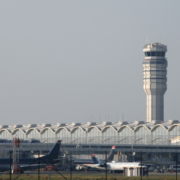June 16, 2022
Media contact: National Consumers League – Katie Brown, katie@nclnet.org, (202) 207-2832
Washington, D.C. – On Wednesday, June 15, 2022, the National Consumers League’s Director of Health Policy Jeanette Contreras provided oral testimony to the Senate Judiciary Subcommittee on Competition Policy, Antitrust, and Consumer Rights on how consolidation in the marketplace harms consumers.
In her testimony, Ms. Contreras discussed the importance of consumers having choices for safe goods and services at a fair price, a core principle of NCL’s advocacy work. Touching on several issues impacting consumers in the U.S. – such as the infant formula shortage, consolidation of the airline industry, primary ticketing market for live events, and the unfair business practices of pharmacy benefit managers (PBMs) – Ms. Contreras reiterated the need for competition in the marketplace and enacting stronger antitrust laws, all of which help protect U.S. consumers.
Her testimony appears below.
June 15, 2022
Good afternoon Chairwoman Klobuchar, Ranking Member Lee, and members of the Subcommittee. My name is Jeanette Contreras. I am the Director of Health Policy at the National Consumers League. I appreciate the opportunity to testify remotely today- due to COVID.
Founded in 1899, NCL is America’s oldest consumer advocacy organization. A core principle of our advocacy is that the marketplace should encourage competition to guarantee that consumers have choices for safe goods and services at a fair price. Monopolies harm competition, leaving consumers with fewer options at higher prices. Monopolistic practices are especially harmful when they occur in the health care arena, where they can exacerbate health disparities.
We share the concerns of new parents regarding the recent shortage of infant formula. Our hearts go out to those parents who have lost babies or whose infants suffered devastating health consequences from contaminated formula. At NCL, we believe all goods and services sold to consumers should be safe and meet all legal requirements- including regulatory guidelines set forth by the FDA.
NCL applauds the FDA and the Administration for adopting a multifaceted approach to increase the supply of infant formula, including temporarily allowing foreign manufacturers to sell their products in the U.S. Additionally, we believe invoking the Defense Production Act to prioritize getting needed inputs to infant formula manufacturers was sound policy. These measures are helping to solve the immediate logistical problem of getting formula onto store shelves across the country.
While addressing the immediate formula shortage is most urgent, we are also troubled that it took the FDA almost four months to act on a whistleblower complaint sent to the agency. This complaint should have received immediate attention given the gravity of the allegations against the Abbott facility. We support a full investigation and, if warranted, bringing criminal and civil charges against those who falsified data. NCL also recommends that the U.S. create a single food safety agency and dedicate an office to overseeing the safety and supply of infant formula.
It should concern every American that one manufacturer controls 40% of the U.S. infant formula market. Only three companies — Abbott, Mead Johnson, and Nestle — control 98% of the industry.
Consolidation in the infant formula industry is a major contributor to the current crisis, but it is only one of many cases where market concentration in recent decades has limited competition and harmed consumers.
For example, NCL continues to raise concerns about the consolidation of the airline industry. Due to weak enforcement of existing antitrust laws, from 2005 to 2015, the number of major U.S. airlines declined from nine to four. And today they control more than 80 percent of the domestic U.S. market.
Our antitrust laws have also failed to protect consumers who attend live events. After merging with Ticketmaster in 2010, Live Nation Entertainment controls roughly 80% of the primary ticketing market in the U.S. As anyone who has purchased tickets recently can attest, this has led to an increase in add-fees and the basic price of tickets.
Stronger antitrust enforcement would be especially beneficial for curtailing anti-competitive conduct in the health care industry, where we’ve seen consolidation lead to higher costs for consumers without an increase in quality or access to care. We are pleased that the Biden administration is looking into how hospital prices increase after acquisitions. We are also hopeful that the ongoing review of DOJ & FTC merger enforcement guidelines will result in more action by those agencies.
NCL also applauds the recent FTC decision to open an investigation into the unfair business practices of pharmacy benefit managers or PBMs. NCL works tirelessly to raise awareness of the outsized role that PBMs play in driving up prescription drug prices for consumers. According to a recent report, the three biggest PBMs controlled roughly 77% of all U.S. prescription drug claims in 2020. And a recent Senate Finance Committee report found some PBMs are getting a 70% rebate on insulin, while out-of-pocket costs for this life-saving medication continue to rise.
These cases are just a few examples of how monopolies and anti-competitive practices have become a problem for consumers. To ensure crises like today’s formula shortage do not happen again, market consolidation must be addressed so that the temporary shutdown of a single factory does not result in the collapse of an entire supply chain.
Whether it is baby formula, airline travel, live event tickets, or pharmaceutical sales, the lack of competition is having increasingly negative impacts on consumer welfare and requires urgent action.
Chairwoman Klobuchar, Ranking Member Lee, thank you for holding today’s hearing and inviting NCL to speak about this important issue. I look forward to answering your questions.
###
About the National Consumers League (NCL)
The National Consumers League, founded in 1899, is America’s pioneer consumer organization. Our mission is to protect and promote social and economic justice for consumers and workers in the United States and abroad. For more information, visit www.nclnet.org.

















